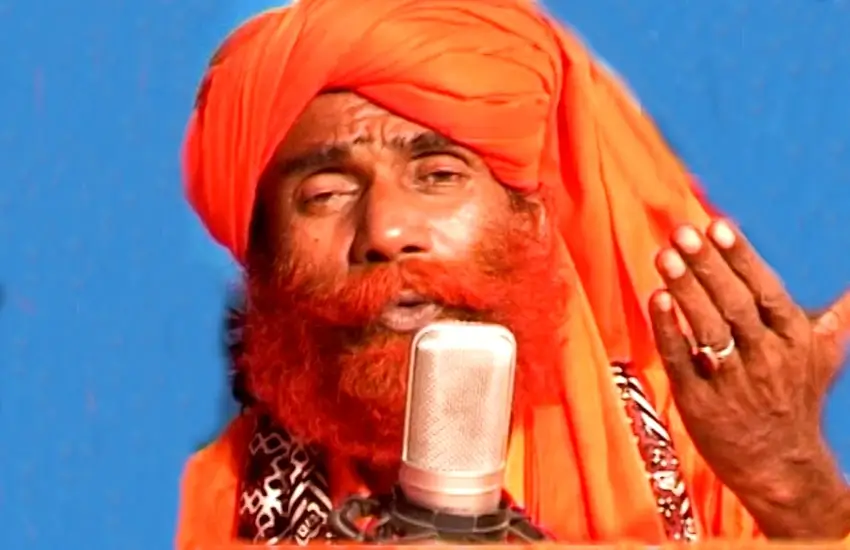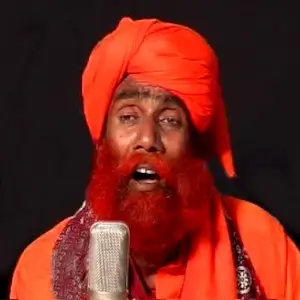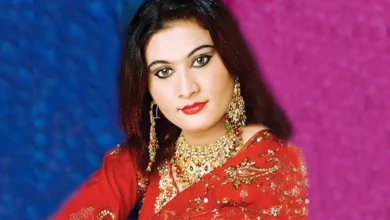Jamal uddin Faqeer – Bio, Top 20 Best Sindhi Sufi Music

Jamal Uddin Faqeer most well-liked Sindhi Sufi Music Artist. Sindhi classical and folk music has a singular attraction that resonates with the soul. Amongst its maximum valuable artists is Jamal-uddin Faqeer, a reputation synonymous with the candy and soulful tunes of Sindh. His contribution to Sindhi music, particularly in Sufi and classical genres, has left an indelible mark on the cultural panorama.
Best Jamal-uddin Faqeer Sindhi Sufi Music Download
Biography and Early Life
Jamal Uddin Faqeer was once born in the culturally wealthy province of Sindh, Pakistan. Rising surrounded by the normal melodies of his place of birth, he developed a deep love for the track. His inspiration came from the area’s Sufi traditions, which formed his journey as a singer.
Journey into Sindhi Sufi Music
Jamal Uddin Faqeer’s first steps into Sufi music had been deeply influenced by the lessons and poetry of Sindhi Sufi saints. Their messages of affection, peace, and devotion changed into the basis of his art, enabling him to hook up with audiences on a profound level.
Contribution to Sindhi Classical Music
Jamal Uddin Faqeer’s music blends classical techniques with Sufi parts, developing timeless masterpieces. His albums are full of melodies that seize the essence of Sindhi culture, making him a loved determine throughout generations.
Traditional Sindhi Folks Music and Arfana Kalam
Arfana Kalaam, a type of mystical poetry and music, holds a different position in Sindhi culture. Jamal Uddin’s remarkable skill in conveying those poetic verses to existence via his making a song has made him a legend within the style.
Signature Style and Attire
Jamal Uddin’s iconic crimson turban and conventional apparel signify his deep connection to Sindhi Sufi traditions. His look, similar to his Sindhi Sufi songs, exudes authenticity and devotion.
Iconic Performances and World Achieve
He has carried out on more than a few occasions throughout Sindh and Pakistan, charming audiences together with his soulful renditions. His track has additionally reached global listeners, showcasing Sindhi culture on an international platform.
Topics of His Music
His songs often discover subject matters of love, spirituality, and team spirit. Using weaving the lessons of Sufi poets into his music, he brings timeless knowledge to life.
Singing the Kalam of Sufi Poets
Jamal Uddin Faqeer has sung the works of legendary Sufi poets like Shah Abdul Latif Bhitai, Budhal Faqeer, and Sachal Sarmast. His interpretations in their Kalam (poetry) have kept their teachings alive.
Impact on Sindhi Music and Culture
His track has performed a vital position in reviving traditional Sindhi tunes, inspiring a brand new technology of artists to include their roots.
Legacy of Jamal Uddin Faqeer
Jamal Uddin Faqeer’s legacy lies in his determination to hold Sindhi music. His contributions ensure that long-term generations can experience the richness of Sindhi culture.
Why His Music Resonates With People
The emotional intensity and spiritual themes of his songs resonate with listeners, making his music timeless and universally interesting.
Challenges and Triumphs
Regardless of going through challenges to gain popularity, Jamal Uddin Faqeer emerged as a celebrated artist, a testament to his skill and perseverance.
Modern Appreciation of Sindhi Sufi Music
Today, online platforms allow his music to succeed in new audiences, making sure his art continues to encourage.
Popular Super Hit Songs by Jamal Uddin Faqeer
A few of his most well-liked songs come with renditions of Shah Abdul Latif Bhitai’s poetry and soulful folk music that celebrate Sindhi heritage.
Conclusion
Jamal Uddin Faqeer remains a pillar of Sindhi music, bridging the space between tradition and modernity. His work isn’t just music however a cultural treasure that can encourage generations to return. For more music visit our website Media Music Mania.
FAQs
What makes Jamal Uddin Faqeer’s music unique?
His music blends Sufi spirituality with classical and folk parts, creating a profound emotional enjoyment.
Which Sufi poets influenced his work the most?
Shah Abdul Latif Bhitai, Sachal Sarmast, and Budhal Faqeer were very much impressed by his music.
How does his attire reflect Sindhi culture?
His crimson turban and conventional Sufi dress signify his deep connection to Sindhi traditions.
What are his most famous songs?
His renditions of Shah Abdul Latif Bhitai’s poetry and Sindhi folk music are particularly in style.
How can one listen to his music online?
His music is to be had on more than a few online platforms, together with streaming services products and music archives.







